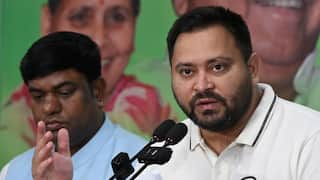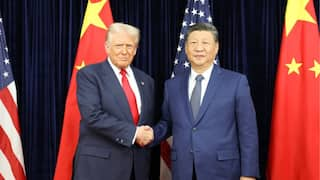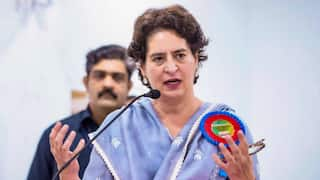Addressing a seminar on "Aerospace Power in Future Conflicts" at Subroto Park, he noted that air power has historically shaped the destiny of nations and the outcomes of wars. "Through the annals of human history, the skies have often been regarded as realms of wonder and exploration, where dreams take flight and boundaries dissolve into the vast blue expanse," he said, reported news agency PTI.
"Balakot-like operations have shown that given the political will, aerospace power can be effectively carried out beyond enemy lines, in a no-war, no-peace scenario... Ongoing conflicts across the globe have brought out significant lessons for nations in general and air power in particular," he said at the seminar.
He emphasized the transformation in the understanding of the military operational environment, from a force-driven battlefield to an arrangement of systems capable of simultaneous and independent operations across multiple domains, as per the PTI report.
"As we navigate these uncharted skies, air power being a key component of national power, would undoubtedly play a pivotal role and also serve as a symbol of national strength, a tool for peace and cooperation," he said.
"We all need to acknowledge that the wars of the future will be fought differently," he said.
Air Chief Marshal Chaudhari also outlined the characteristics of future conflicts, which would involve a blend of kinetic and non-kinetic forces, high battle space transparency, multi-domain operations, a high-degree of precision, enhanced lethality, a compressed sensor-to-shooter cycle, and of course, all under intense media scrutiny, the PTI report added.
Regarding space, he underscored its critical role in military operations, emphasizing the importance of seamless communication, navigation, and surveillance capabilities for modern military forces.
"As nations increasingly rely on space-based assets for building strategic advantage, militarisation and weaponisation of space has become an inevitable reality," he said.
Air and space control along with denial capabilities "will prove to be decisive" for furtherance of all operations. For that to happen, "we would need to gain and maintain not only information superiority but also decision superiority", he said, reported PTI.
"Emerging technologies like CMOS (complementary metal oxide semiconductor) sensors, smart decision support matrices, manned-unmanned teaming and robust and redundant C2 networks are critical capabilities that need to be developed," the IAF chief added.







































